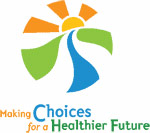We’re almost at the end of Older Americans Month. I think it’s a good thing to increase people’s awareness of the contributions of those who might otherwise go unnoticed. But I wonder how many people even knew that was the designation given to the month of May? I confess I didn’t until about a week ago. Older Americans Month (originally Senior Citizens Month until Carter moved to have it renamed in 1980) goes hand in glove with the 1965 “Older Americans Act”, which was enacted to coordinate community-based services and opportunities when there were 14 million of us over 60.
Today there are 44 million of us and the number will grow to just shy of 100 million in the next 20 years or so. With the occurrence of this demographic phenomenon, we need a lot more than a month to focus on age and its implications on our society, our economy and our way of life. Admittedly, more and more is being written and spoken about all of this. Most of it is focused on the economics: who is going to pay for our retirement years and our healthcare? How much is it going to cost to keep us alive a few months longer (or worse, to warehouse us in ‘homes’ that are often reminiscent of the mental health institutions we closed down in the 1960s)? Any way you cut it, the vast majority of the conversation about our expanding older population speaks about it as if it is a problem.
- There is almost no conversation about what unique contributions older people uniquely offer to the common good.
- There is almost no conversation about what impact older people might have on our collective economic enterprise if we were challenged to do so (beyond working minimum wage jobs to keep ourselves alive and to help ends meet).
- There is almost no conversation about our later years being a strongly positive time of life and one to look forward to. Most of the conversation focuses on delaying ‘old age’ as long as possible and enjoying our ‘youthfulness’ while we can.
- There is almost no systematic conversation about what the old can be learning from the young and what the young can be learning from the older generations. What learning does occur is mostly ad hoc, usually based on interpersonal bonds or offered within the context of skills development for the young.
- There are almost no venues or forums expressly designed to facilitate dialogue and promote and support action between generations about the significant issues of the day.
I’m not interested in being counted as a constituent in an older persons’ lobby. And I certainly don’t want my age to define me or determine what is and is not available to me in the future.
I want who I am to speak louder than how old I am. And I think most of us want the same thing. But we need to wake up to the fact that our culture isn’t constituted this way. Our culture dictates that ‘aging’ and ‘decline’ are virtually synonymous. To resist or deny this view simply makes the case even stronger. Perhaps you or I can be an exception to the rule (which is fine for the individual), but it doesn’t change the fact we are all growing older into a socially constructed ‘condition’ that, at best, will limit our options as we age and, at worst, will invalidate and seemingly cancel much of the best things we’ve valued about ourselves and life.
How can we change this?
- We must begin to speak about aging as possibility.
- We must counter the resignation that so many of us experience and encounter as we retire and move into our later years.
- We must share ourselves and our vision of the future with others—especially the young. We must mobilize ourselves and participate in whatever projects we can find or create to leave the world better than we found it.
- We must accept responsibility for the good and the bad around us, stay engaged in sharing what we have to offer, and actively participate in whatever we enjoy.
It’s no coincidence that this year’s theme for Older Americans Month is “Older Americans: Making Choices for a Healthier Future”.
It’s time for us to ‘walk our talk’ and put our wisdom into action—to make choices for a sustainable future for all the generations yet to come. In doing so, we can become Elders (in the best sense of the word) and practice what I am calling ‘Eldering’.

